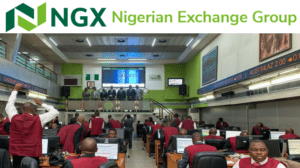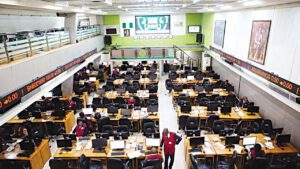
Leveraging blockchain, real world asset tokenisation for the Nigerian real estate industry
The chief marketing officer of Flincap, Oladotun Akangbe, has opined that blockchain is a groundbreaking technology set to revolutionise the real estate industry in Nigeria. More Nigerians are leveraging the technology to improve asset security, efficiency, and transparency of their assets.
Still, they have not seen reasons to use it for physical assets like land. Almost all the states are grappling with the issue of cumbersome paperwork, and fraud, and blockchain technology offers a better solution.
In Nigeria, Lagos, Abuja, and Rivers states are known for land and property fraud. Sometimes, a plot of land is sold to half a dozen buyers, often leading to needless court cases. Issues like this may increase the investors’ lack of interest in real estate. However, the Chief Marketing Officer of the Flincap crypto exchange proffers some solutions that can be adopted to restore trust in the industry.
Blockchain, also known as DLT (Decentralised Ledger Technology), helps to distribute records across multiple computers to ensure the data is immutable, secure, and transparent. This will solve the most persistent problem in Nigeria’s real estate industry.
Oladotun, in an interview stated that the key benefits of blockchain in real estate are the immutability of property ownership records, verification of land titles, and elimination of property sales with forged documents. The significant advantage of DLT is transparency, as all transactions are opened and accessible by the regulators, buyers, and sellers. It is easier for the regulators to verify property information. More investors will be attracted to the market when trust is built among the stakeholders.
Traditional real estate deals in Nigeria often involve a lot of paperwork and intermediaries that cause delays and increased costs. Blockchain can improve efficiency in land and property transactions, it helps with optimising the processes by automating ownership transfer and verification, reducing associated costs and time.
He reinstated the fact that Nigeria is extremely close to blockchain adoption in the real estate market because more tech startups are now building blockchain-based products to enable transparent and secure property transactions. The resultant effect of this would lead to better property financing.
“The policymakers are encouraged to create laws that attract innovation while protecting the buyers and sellers. It is impressive that the Nigerian government is showing increasing interest in blockchain technology, and leveraging the real estate industry will set a precedent for other industries like supply chain and health,” Oladotun.
The CMO of Flincap believes that the integration of blockchain could lead to the tokenisation of real estate in Nigeria and the creation of a digital registry for lands. A blockchain-based registry would make sure that all land records are accessible to the public, up-to-date, and accurate. This could reduce land disputes and improve efficiency in the market.
However, to achieve this, the government must address infrastructural deficiency and double down on technological literacy. The potential benefits of blockchain for real estate in Nigeria are huge. As the country adopts this technology, it stands not only to modernise the industry but also to set the pace and become a standard for other developing countries in Africa and Asia.
With the blockchain and emergence of decentralised oracles from Chainlink, it will be possible for Nigerians to speculate the value of land parcels and properties in top cities in Abuja, Port Harcourt, Kano, Benin, Aba, Ibadan, Abeokuta, and so on.
The industry players can build blockchain products that tokenize and track RWAs (Real World Assets) in real-time. This opportunity may be opened to Nigerians and other nationalities interested in trading the real estate index in the crypto spot and futures market.
Another alternative is blockchain products popularly referred to as REITs (Real Estate Investment Trusts), which are companies that finance income-generating real estate. They do the heavy lifting while investors buy tokens to gain exposure to the market without direct ownership of lands and properties in Nigeria.
Oladotun concluded that the future of the real estate market in Nigeria looks promising through tokenisation with the blockchain at the helm. It allows groups of individuals to have access to the same premium services as wealthy citizens.
It will foster an era of shared prosperity and tremendous growth in the industry. By taking advantage of this technology, Nigeria can overcome issues that are facing the industry and pave the way for transparency and trust.




